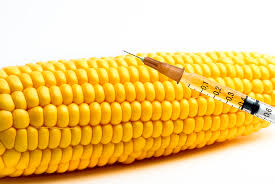Genetically modified (GM) crops were introduced in South Africa in 1997. By 2013, South Africa had 2.3 million hectares of GM crops under cultivation, 78% of which was insect-resistant and/or herbicide-tolerant maize.
A first study of its kind has found that GM maize has penetrated the informal seed supplies of smallholder farmers in the Eastern Cape, South Africa. The study screened for transgenes in external fields, home gardens and local household seed holdings in a village where GM insect-resistant maize had been previously grown from 2001–2008 and also analysed the seed management practices of farmers there.
The researchers found that the commonly used transgene promoter p35s occurred in one of the 796 maize leaf samples (0.0013%) and in five of the 20 seed batch samples (25%). Three of the five included herbicide-tolerant maize (NK603) while the remaining two included genes for insect resistance (from MON810).
The researchers concluded that GM maize is grown in such close proximity to other locally recycled and purchased maize varieties that transgene flow must be expected at a high rate, evidenced by the findings that the transgenes have been mixed into seed storages of the small farmers of the study village who constantly share and recycle their seeds. The repercussions include ecological risks such as resistance development as well as possible infringement of intellectual property rights and permit conditions. The study demonstrates how difficult it is to cultivate GM and non-GM crops together in small rural farms under current permit regulations for GM crops.
—
DETECTION OF TRANSGENES IN LOCAL MAIZE VARIETIES OF SMALL-SCALE FARMERS IN EASTERN CAPE, SOUTH AFRICA

